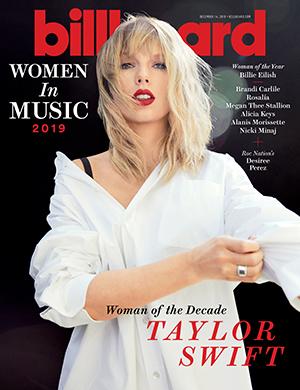
“So sorry to mark the passing of my friend and record company mentor, Joe Smith. For signing me to Warner Brothers Records in 1971 and then to Capitol Records in 1989, I owe both my start and later career breakthrough to Joe. Aside from being one of the most beloved and respected executives in the music business, his support of the more non-mainstream artists like Ry Cooder, Randy Newman, The Meters, Little Feat and myself, was what drew me to Warners in the first place. In a business that became more preoccupied with short term profits and commercial viability, what set Joe apart is that he believed in supporting artists for the long haul, allowing us to stretch and grow at our own pace and direction. Giving me that second chance for Nick of Time has made all the difference in my life and career. He was a dear friend and one of the least phony, most warm hearted and loyal people any of us in this business will be blessed to know.
My sincere condolences to Donnie and all his beautiful family.”
—Bonnie Raitt
“Joe believed in supporting artists for the long haul, allowing us to stretch and grow.”
I went out to California in 1970 because Capitol Records was showcasing me at the Troubadour. While I was out there, I called Joe Smith, who was at Warner Bros. Records at the time, and asked if he could take a meeting.
I felt a bit sheepish going over to Warner Bros. after Capitol flew me out, but Warner was really where I wanted to be. It was the label that was hip enough to give James Taylor, Ry Cooder and Randy Newman enough rope to do whatever they wanted. They were at the top of my list.
At the time, Joe assured me he was not interested in changing the way I looked or controlling how I sounded. He really nurtured me as an artist. “We make our money from Deep Purple and Black Sabbath and Frank Sinatra,” I remember he said to me then. “We do that so that we can develop artists like yourself.”
In a business that became more preoccupied with short-term profits, Joe believed in supporting artists for the long haul, allowing us to stretch and grow. Joe was such a warm and engaging guy. And he was the same Joe Smith the whole time. That’s why he was so beloved by artists especially. He would have been completely supportive if I had gone and made an album on the back of a flatbed truck with Mississippi Fred McDowell. He would have thought it was great.
In the mid- to late ’80s, [my former managers] Danny Goldberg and Ron Stone were shopping for a new label deal after I left Warner Bros. They were telling labels: “She doesn’t want money to sign, but she wants artistic control.” I said, “I’ll do the work. I sell around 150,000 records. I tour all the time. I do lots of press — but I’m not looking for somebody to reinvent the wheel. I’m not going to redesign my look and my sound to be commercial.”
By that time, Joe had moved over to Capitol-EMI [from Elektra/Asylum]. He was a natural fit there. Fifteen years after he first signed me to Warner Bros., he gave me a second shot. He said to [my managers]: “Listen, we’re not going to spend a lot of money. She can do what she wants. We expect modest sales, but I would be happy to have Bonnie.” I signed the deal with Capitol for one album, and Joe knew that I wanted to do a stripped-down-sounding record with Don [Was] producing. Giving me that second chance for [1989’s] Nick of Time has made all the difference in my life and career.
Joe loved Nick of Time. We had tremendous personal affection for each other. He was so happy that I got my life together and that he was the person who was able to give me that second shot. I feel like he was in my family. The Grammys for that album [including album of the year] were an astonishing victory for both of us that no one expected. Joe was so proud and grateful, as I was. We were really glad that we had taken a chance on each other.
The last time I saw him was in 2015, when he got his star on the Hollywood Walk of Fame. Jackson Browne and I gave impassioned talks about him and then there was a wonderful lunch at the Wilshire Country Club with his family and decades’ worth of people who knew him in the record business. People paid tribute to him for hours.
He was a dear friend as well as one of the most sincere, warmhearted and loyal people any of us in the business will be blessed to know.
•As told to Melinda Newman
This article originally appeared in the Dec. 14 issue of Billboard.

Source: © Copyright Billboard But wait, there's more!








 Visitors Today : 93
Visitors Today : 93 Now Online : 4
Now Online : 4



































































































